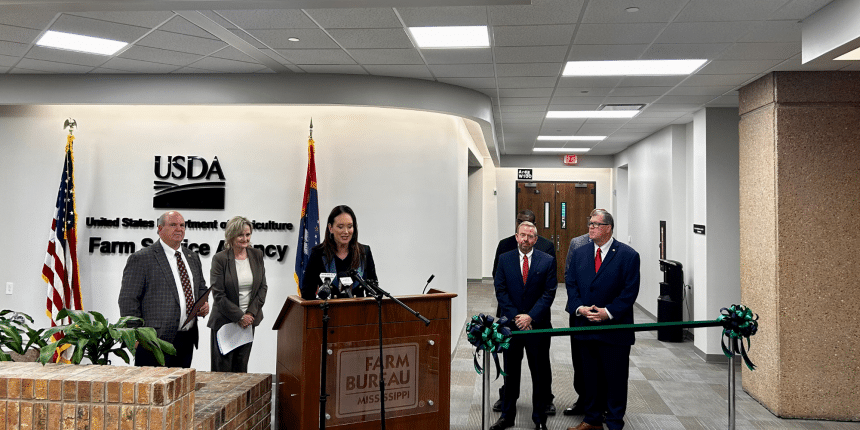The U.S. Department of Agriculture has unveiled a new plan aimed at addressing a veterinarian shortage in Mississippi and other states.
Agriculture Secretary Brooke Rollins and U.S. Sen. Cindy Hyde-Smith (R-Miss.) held a press conference on the campus of Mississippi State University Thursday morning and announced the Rural Veterinary Shortage Action Plan to address critical needs relating to food animal health and large animal care in rural areas.
“We have a real challenge, a significant problem with our number of veterinarians. You can’t have a thriving rural America without a really robust veterinarian [industry],” Rollins said.
As part of the plan, Rollins explained, the USDA is making an additional $15 million available in its veterinary medicine repayment program and streamlining the application process by collecting less information and allowing submissions through an online portal.
The plan includes the creation of a new economic research program to analyze and project veterinary shortages in rural areas, especially for food animal veterinarians, alongside recruiting efforts. The USDA is also pursuing strategies to offer more federal veterinarian jobs to graduates of Mississippi State University and other rural schools.
“It is a problem that not many people know about, but like I mentioned, it’s pretty significant. With some funding, focus, and partnerships with the states and great veterinarian schools like Mississippi State, I think we’re going to see a real turnaround in the coming years,” Rollins said.
RELATED: Sen. Hyde-Smith announces reelection bid during trip with Ag Secretary Rollins
While in Starkville, Rollins and Hyde-Smith also announced two Mississippi State alumni as recipients of the USDA’s veterinary services grant program. Dr. Rachel McCurdy, a 2020 graduate who practices in Scott and Newton counties, will receive $125,000 for equipment for her clinic that serves 200 arms. Dr. Kimberly Klunk, a 2021 graduate who practices in Lincoln, Franklin, and Adams counties, will receive $125,000 for livestock reproductive equipment.
Another major focus of the visit was the reorganization of the U.S. Department of Agriculture. The administration is moving the majority of the USDA employees that are originally based in Washington, D.C. into rural communities to reduce taxpayer costs and bring the agency closer to the people it serves.
For Mississippi, that includes relocating the USDA Rural Development State Office to the Mississippi Farm Bureau’s renovated headquarters alongside the Farm Service Agency, creating what officials described as a “one-stop shop” for agriculture and rural business.
“This is just one of the many actions of President Trump’s historic second term to put America and our farmers first,” Rollins said, praising the partnership with Mississippi Farm Bureau and the leadership of Hyde-Smith.
Hyde-Smith expressed pride in the USDA’s move, noting that a centralized location will give farmers more time in the field and make services more convenient. She thanked Rollins, Mississippi Farm Bureau, and their teams for working to ensure farmers and ranchers have the tools they need to produce safe and affordable food.








